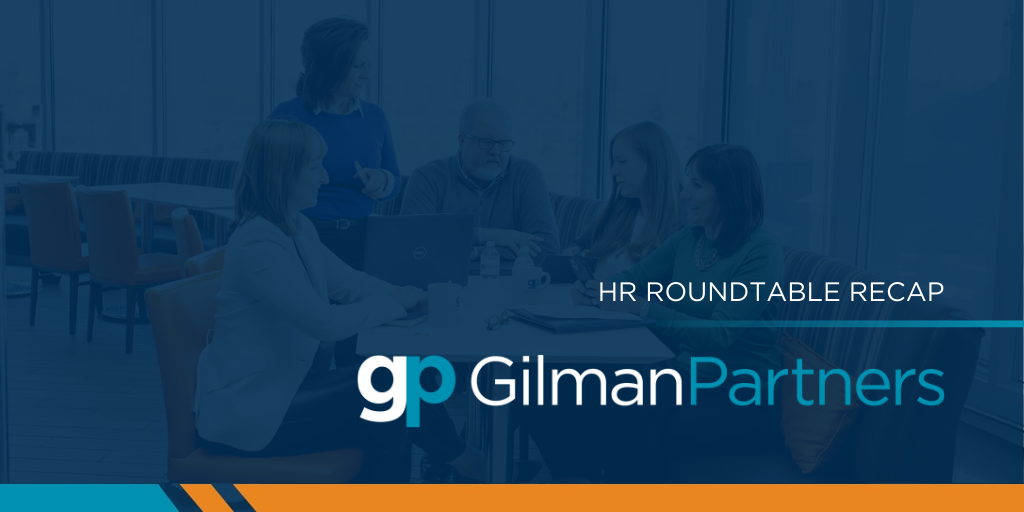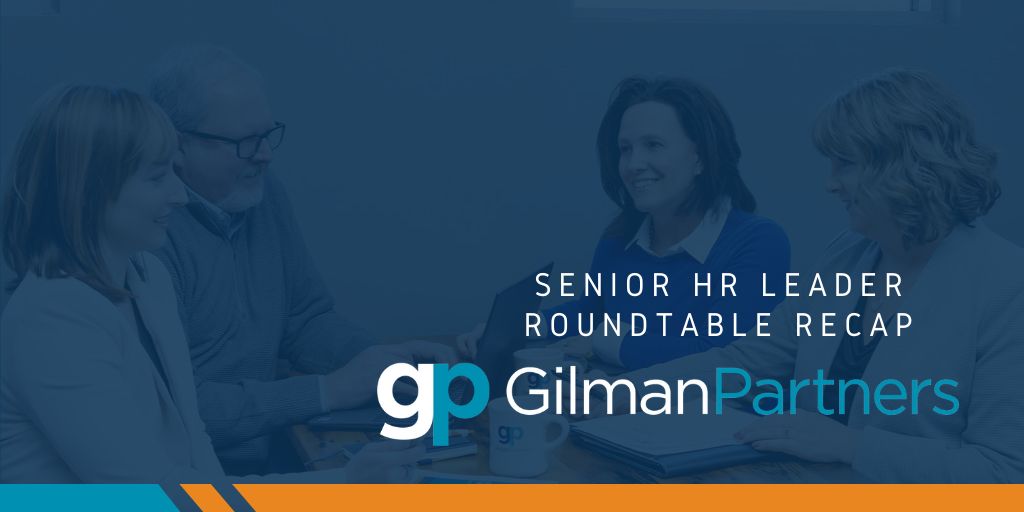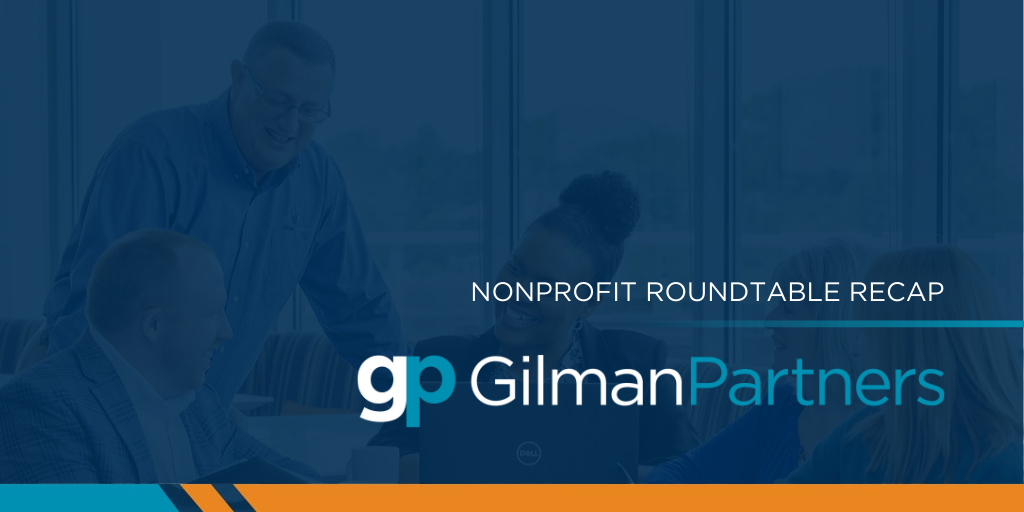Gilman Partners hosted a virtual roundtable that brought together HR leaders from a range of industries to discuss how talent priorities are shifting in today’s evolving economic climate. Below are key themes that emerged from the conversation.
Reading a Mixed Talent Market
Participants described a job market that feels increasingly complex to read. While some organizations have seen an uptick in applicants, others are experiencing a slowdown or stagnation in candidate activity. Several HR leaders noted a growing hesitance among candidates to make job changes, and many organizations are pausing hiring decisions to better evaluate long-term needs. As one participant put it—and others echoed—“It feels like we’re on pause.” Another added, “It’s like I’m studying for a test but I don’t know what I’m studying for,” capturing the uncertainty of the current climate. Internal mobility, upskilling, and leadership development have become more important as companies seek to do more with their existing teams.
Retention, Rewards & Employee Value Proposition
Retention emerged as a top priority, with organizations looking beyond compensation to create compelling employee experiences. Leaders shared how they are investing in wellness initiatives, flexible time off, and programs that reinforce purpose and culture. Some organizations are offering app-based resources like subscriptions to the Calm app and the Benevity platform, which allows employers to match employee donations. Others are building connection through “Family Days,” where employees can invite family members to visit their workplace and see what they do. Tools like total compensation statements and internal leadership academies are helping communicate value and align teams. There was strong agreement that employees want to feel seen and valued—not just with pay, but through meaningful growth opportunities, recognition, and clarity around their future at the company. Several leaders also noted that turnover has remained low, and when it does occur, they are closely evaluating the roles and needs associated with each departure.
Communicating in Uncertain Times
With economic shifts continuing to unfold, clear and consistent communication is more critical than ever. Leaders shared how they are using multiple touchpoints—such as HR-led townhalls, leadership coffee chats, and internal storytelling—to reinforce direction and build trust. In times of change, overcommunication has become a strategic tool for engagement and alignment, even when definitive answers aren’t always available.
Redefining Metrics and Moving Forward
Looking ahead, HR leaders discussed how their priorities are evolving. Many are slowing down decision-making to be more intentional. HR leaders see an opportunity to expand how success is measured. Traditional metrics may no longer capture the full picture—especially when business isn’t as robust—so organizations are exploring additional indicators that reflect progress in other meaningful ways. For example, even if sales targets aren’t met, teams might be completing work more efficiently, achieving higher customer satisfaction scores, or seeing a boost in employee engagement. Several participants also spoke about the power of small, strategic actions like recognizing retention wins, celebrating employee stories, and investing in manager development.
Despite the challenges, the conversation was marked by optimism and resolve. HR leaders remain focused on leading with clarity, care, and adaptability as they help their organizations navigate what’s next.




